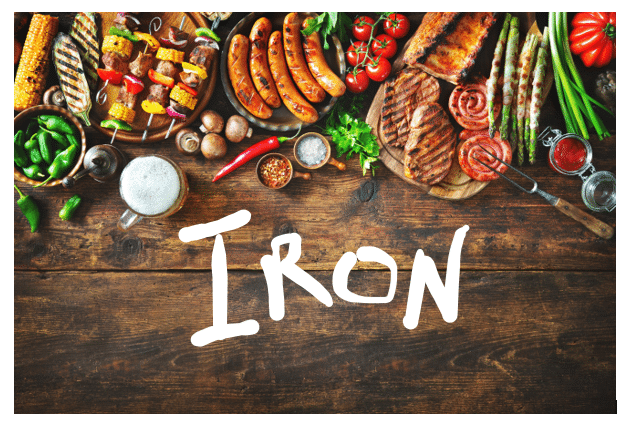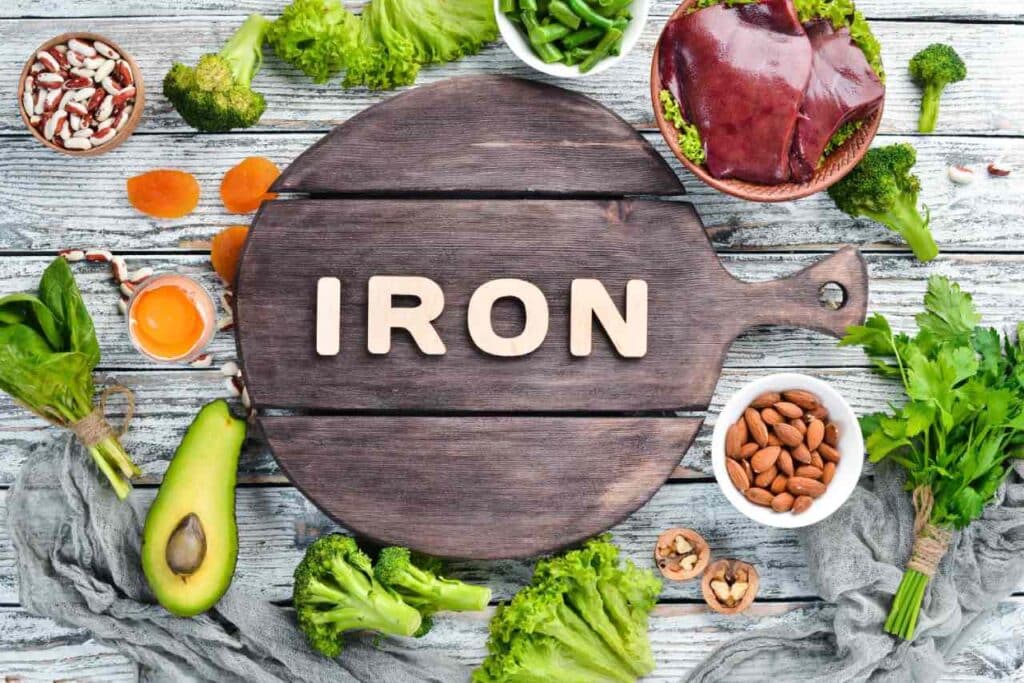Iron deficiency is one of the most common nutritional issues seen in General Practice, yet many people don’t realise they have it. Low iron can cause fatigue, brain fog, low mood, and difficulty concentrating – symptoms that are often blamed on stress or a busy lifestyle.
The good news? Iron deficiency is easy to diagnose and highly treatable.
If you’re experiencing persistent tiredness or unexplained symptoms, understanding the signs of low iron can help you know when to seek support.

What Is Iron Deficiency?
Iron is an essential mineral the body needs to make haemoglobin, the protein that carries oxygen through your bloodstream. When iron stores are low, your body struggles to transport oxygen effectively leading to a range of symptoms.
We get iron from food, but humans are not very efficient at absorbing it. This is why iron deficiency is common in women, teenagers, vegetarians, and people with gut conditions.
Common Symptoms of Low Iron
Recognising the signs early can make a significant difference. Symptoms may include:
- Persistent tiredness or exhaustion
- Brain fog and difficulty concentrating
- Light-headedness or dizziness
- Low mood or irritability
- Poor exercise tolerance
- Feeling cold more often
Because these symptoms are nonspecific, many people overlook them. A simple blood test for iron can provide clarity.
What Causes Iron Deficiency?
Some people develop low iron because they’re not getting enough from their diet. Others may be losing iron without realising it.
Common causes include:
1. Menstrual Blood Loss
The most frequent cause in women of childbearing age.
2. Pregnancy
Iron requirements increase significantly during pregnancy.
3. Low-Iron Diets
Vegetarian or vegan diets often contain iron that is less easily absorbed.
4. Gastrointestinal Conditions
Coeliac disease, inflammatory bowel disease, or gut surgeries can reduce absorption.
5. Occult (Hidden) Blood Loss
Bleeding in the bowel can cause low iron. Around 5% of positive faecal occult blood tests are linked to bowel cancer, which is why investigating iron deficiency is important.
Who Is at Higher Risk?
- Women with heavy periods
- Pregnant women
- Teenagers experiencing rapid growth
- Vegetarians and vegans
- People with coeliac disease or digestive disorders
- Those recovering from surgery or chronic illness
If you fall into one of these groups, regular monitoring may be helpful.
How Do GPs Diagnose Iron Deficiency?
Testing for low iron is quick and simple. Your doctor may order:
- Full Blood Count (FBC)
- Iron studies including ferritin, the best indicator of iron stores
These results help determine whether you have iron deficiency and guide the appropriate treatment plan.
Treatment Options for Iron Deficiency
Treatment depends on the severity of the deficiency and the underlying cause.
1. Improving Dietary Iron Intake
Foods high in iron include:
- Beef, lamb, and organ meats
- Lentils, beans, tofu
- Leafy greens like spinach
- Iron-fortified cereals
To boost absorption:
- Pair iron-rich foods with vitamin C (tomatoes, citrus, capsicum).
- Avoid consuming dairy with iron-rich meals, as it can inhibit absorption.
2. Oral Iron Supplements
Often the first treatment step. These may need to be taken for several months.
3. Iron Infusions
If oral supplements cause side effects or don’t work, an iron infusion may be recommended. This is a quick and effective way to replenish stores.
4. Managing Underlying Causes
Your GP may investigate issues like heavy periods or gastrointestinal bleeding to prevent recurrence.
When Should You See a GP?
You should book an appointment if you experience:
- Ongoing fatigue
- Unexplained low mood or mental fog
- Shortness of breath with mild activity
- Heavy menstrual periods
- A vegetarian or vegan diet with symptoms of low iron
Early diagnosis and treatment can dramatically improve your energy, mood, and overall health.
Book an Iron Deficiency Check at Our Clinic
If you’re concerned about low iron or experiencing persistent fatigue, our GPs can help with:
- Comprehensive blood tests for iron
- Personalised dietary advice
- Oral supplementation guidance
- On-site iron infusion therapy (if required)
- Investigation of underlying causes
Your health and wellbeing matter.
Book an appointment today to discuss iron deficiency and take the first step towards feeling better.



